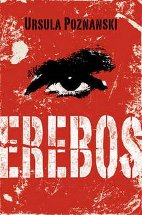Erebos by Ursula Poznanski

Translated by Judith Pattinson. Allen and Unwin, 2012. ISBN 978 1
74237 953 1.
(Ages: 14+) Computer games. Sharp eyed Nick Dunmore sees small
parcels being exchanged amongst the students at his school. His best
friend, Colin is out of reach, will not speak to him at school,
avoids any eye contact, does not answer his email or phone and seems
to be creating a relationship with the two geeks in their class.
Others are acting oddly as well, but when he corners one of them, he
realises that they are all playing a game, a computer game with
bizarre rules about communication, a game which seems to intrude on
real life. When he is passed the disc, he too sees just how
addictive the game can be, and from the start, the reader gets the
feeling that these kids are being manipulated. Wishing to move from
level two to three, the messenger offers him this option as long as
he introduces another person, and gives him details about another
boy in his class. The alert reader is aware that more is going on,
but Nick is flattered and involved. Nick, now Sarius, must choose
weapons, a name and skills to go into the game, and he finds that
fighting to create a foothold on the next level requires some daring
and skill. At times he must fight to the death. With the energy and
seduction of a serial seen every Saturday at the local picture
theatre (yes, I am that old!) this becomes an exciting read as
Nick moves from one level to another, following the
instructions and requests from the messenger.
When Nick is asked to put a drug in his teacher's thermos, the
teacher who is asking questions and raising concerns, Nick baulks
and in so doing is kicked out of the game. He desperately tries to
get back into the game but when his best friend, Jamie is knocked
off his bicycle and almost killed, Nick begins to see something
sinister is happening, and so takes action, joining others to find
the evil behind the game.
Slow to start, the book builds quickly into an absorbing thriller.
Just like the game we are led down different paths, some dead ends,
some red herrings, but all the while being led on to a stunning
conclusion.
Smoothly translated, this book won the Youth Jury Award in the 2011
German Youth Literature Prize.
Fran Knight